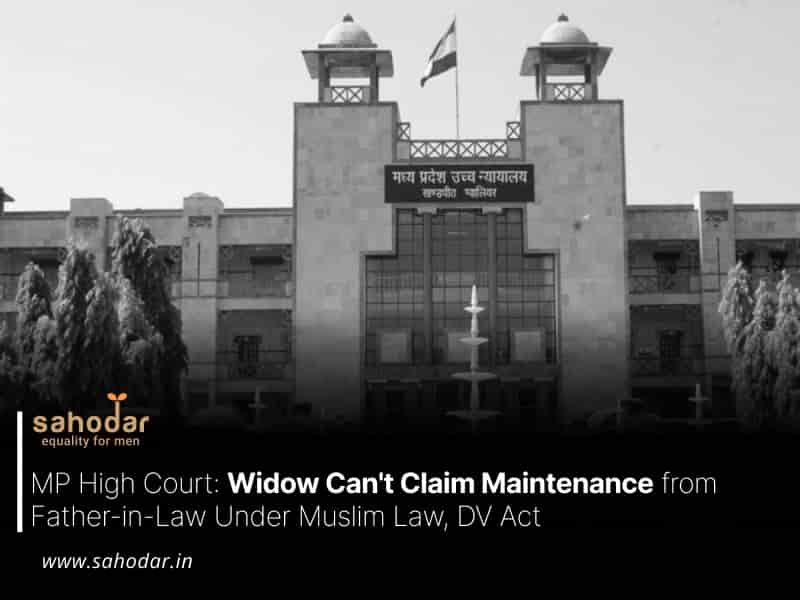The Court noted that the father-in-law cannot be compelled to pay maintenance to his widowed daughter-in-law either under the Domestic Violence Act or under Muslim personal law.
The Madhya Pradesh High Court recently ruled that a father-in-law cannot be forced to provide maintenance to his widowed daughter-in-law under either the Protection of Women from Domestic Violence Act, 2005 or Muslim personal law [Bashir Khan v. Ishrat Bano].
Justice Hirdesh made this ruling while granting a man’s appeal against a trial court’s order that required him to pay ₹3,000 per month as maintenance to his widowed daughter-in-law.
“As per the provisions of Muslim law and the DV Act, in the considered opinion of this Court, the present petitioner being father-in law of respondent, cannot be compelled to give maintenance to the respondent,” the Court said in the October 24 ruling.
To provide some context, the petitioner’s daughter-in-law married his son in 2011. In 2015, the son passed away, leaving behind his widow (the petitioner’s daughter-in-law).
Following her husband’s death, the widow filed a domestic violence case against her in-laws and sought ₹40,000 per month in maintenance to cover her daily expenses.
The petitioner (the woman’s father-in-law) contested this request. However, the trial court ultimately ordered him to pay ₹3,000 per month to his widowed daughter-in-law.
The father-in-law then appealed the trial court’s decision to the sessions court. After the sessions court rejected his appeal, the petitioner filed a revision petition with the High Court, questioning the validity of the maintenance order.
The petitioner’s counsel argued that the petitioner, being elderly and a member of the Muslim community, was not obligated to provide maintenance to his widowed daughter-in-law under Muslim personal law (Mahomedean Law).
The Court was informed that no such obligation exists under the Domestic Violence Act either. In support of this argument, the petitioner’s counsel referenced several other High Court rulings, including the Calcutta High Court’s judgment in Shabnam Parveen v. State of West Bengal & others.
The petitioner’s counsel further stated that even during the petitioner’s son’s lifetime, the daughter-in-law had been living separately.
Given these circumstances, the petitioner argued that he was not obligated to provide maintenance to his widowed daughter-in-law.
The High Court agreed with these arguments and noted that the trial court had erred in directing the petitioner to pay maintenance to his daughter-in-law. As a result, the petition was upheld, and the maintenance order was overturned.

